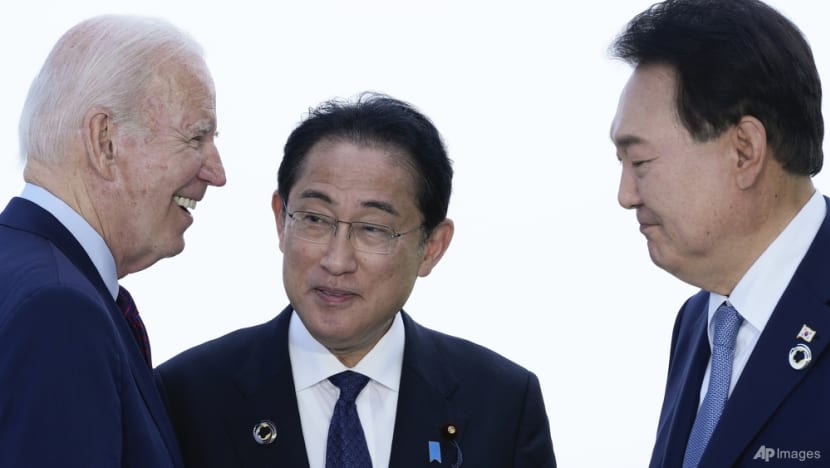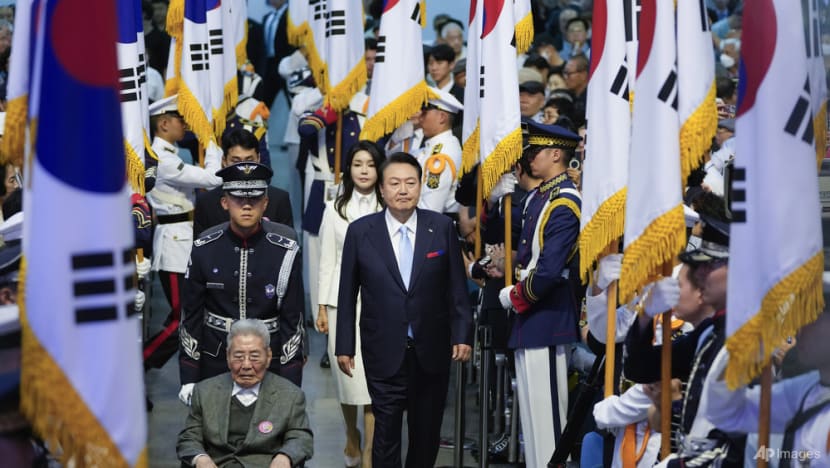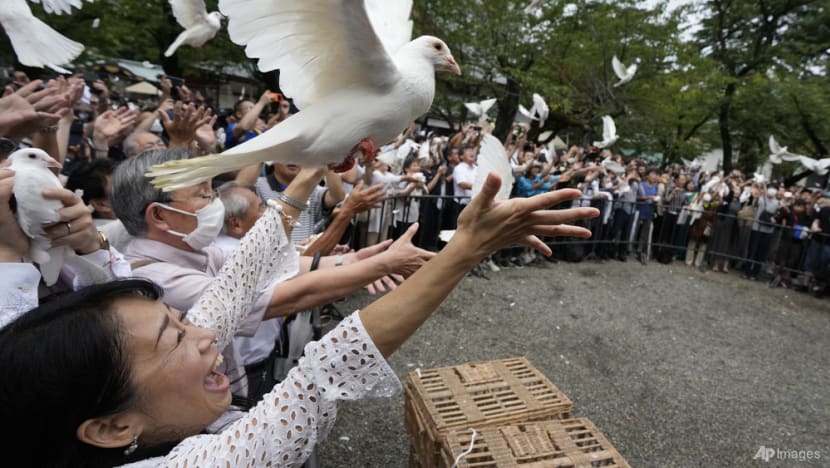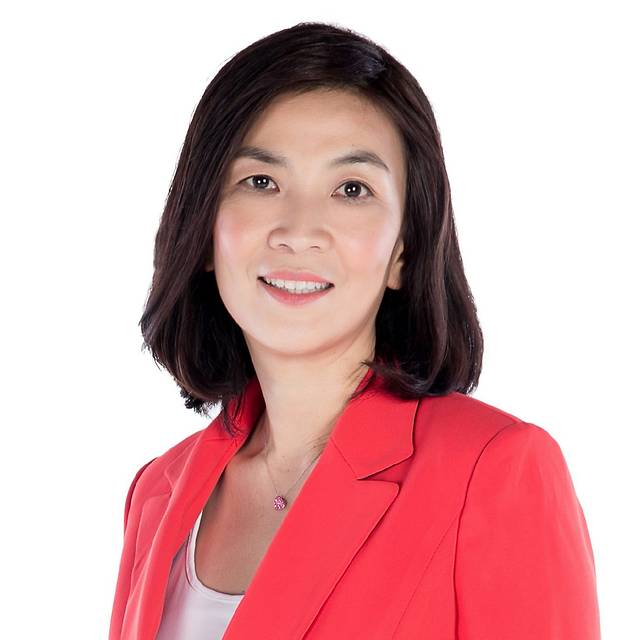Japan, South Korea strengthen security ties amid signs of thawing relations long strained by wartime history
The neighbours – both key allies of the United States – have become growingly alarmed at China’s rising military assertiveness in the region and North Korea’s unprecedented missile tests.

FILE - U.S. President Joe Biden (L) talks with Japan's Prime Minister Fumio Kishida and South Korean President Yoon Suk Yeol (R) ahead of a trilateral meeting on the sidelines of the G7 Summit in Hiroshima, Japan, May 21, 2023. (AP/Susan Walsh)
TOKYO / SEOUL: The relationship between Japan and South Korea, which has long been strained by disputes over wartime history, are showing signs of thawing amid efforts to strengthen security ties in an increasingly hostile regional environment.
The neighbours – both key allies of the United States – have become growingly alarmed at China’s rising military assertiveness in the region and North Korea’s unprecedented missile tests.
On the 78th anniversary of the end of World War II on Tuesday (Aug 15), South Korean President Yoon Suk Yeol said former colonial ruler Japan is a "partner" that shares common values.
The two nations, along with the US, are set to hold a trilateral summit at the Camp David presidential retreat in Maryland on Friday.
‘MILESTONE’ TRILATERAL TIES
Mr Yoon said the upcoming summit is a new milestone in trilateral cooperation, contributing to peace and prosperity on the Korean Peninsula and in the Indo-Pacific region.
His speech on Liberation Day on Tuesday, which celebrates South Korea’s independence from Japan’s 35-year rule, was mostly focused on the rising threat from North Korea.
Calling Japan its partner, President Yoon said their three-way cooperation with the US was becoming more important than ever before.
“Notably, the significance of the South Korea-US-Japan trilateral security cooperation is increasingly growing on the Korean Peninsula and in the region,” said Mr Yoon.
“In order to fundamentally block North Korea’s nuclear and missile threats, (the alliance) must closely cooperate on reconnaissance assets and share North Korea’s nuclear weapons and missiles data in real time.”
The summit comes as South Korea and Japan are trying to renew relations that have been complicated in the past due to unresolved historical issues when Japan colonised the Korean peninsula from 1910 to 1945.

JAPAN MARKS ANNIVERSARY
Japan on Tuesday marked the 78th anniversary of its surrender in World War II, with a full-scale national war memorial service for the first time since the COVID-19 pandemic.
A minute of silence was observed at the Nippon Budokan in Tokyo, where the ceremony is held every year, to remember those who perished in the war.
The number of attendees was much smaller this year as a strong tropical storm lashed central and western parts of the country with heavy rain and high winds, grounding travel.
Many others who used to attend – mostly spouses and siblings of the war dead – have also either passed on or were too frail to turn up.
“As I look back to the long years of peace after the war, I am also reminded of the deep regrets of the past, and sincerely wish not to repeat the horrors of war ever again,” said Japan's Emperor Naruhito.
“To those who lost their lives in the war, along with our people, I express my heartfelt condolences. I pray for world peace and our nation’s further development.”
Some 3.1 million Japanese lost their lives in the war, including those from the atomic bombings of Hiroshima and Nagasaki.
Japanese Prime Minister Fumio Kishida renewed a peace pledge during the solemn ceremony, and voiced Tokyo’s commitment in helping to resolve global conflicts.
“War continues endlessly in the world. Our nation is proactively contributing to peace. Together with the international community, we will hold hands to resolve issues the world faces,” he said.

JAPAN’S DEFENCE POLICY
Since taking office in October 2021, Mr Kishida has shifted Japan from its long-held pacifist policy.
Tokyo unveiled a record budget for its biggest post-war defence expansion last December.
Under the new security and defence policy, the nation will be allowed to launch preemptive attacks on aggressors.
Mr Kishida’s government, in its annual defence paper released last month, cited China's growing assertiveness in the region, as well as North Korea’s military activities, as major concerns for Japan.
Observers said the threats from neighbouring powers have prompted the nation - which has for decades depended on the US for security - to start stepping up its own defence capabilities and forging defence alliances.
Public opinion polls show that an increasing number of Japanese support the build-up.
However, the public stopped short at backing Mr Kishida’s attempts to go a step further to export lethal weapons, a survey by Japanese news agency Jiji Press found.



















